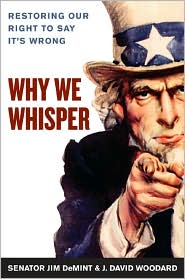By LAURIE COPANS – Jun 21, 2008
TEL AVIV, Israel (AP) — Safety pins and screws are still lodged in 15-year-old Ami Ortiz's body three months after he opened a booby-trapped gift basket sent to his family. The explosion severed two toes, damaged his hearing and harmed a promising basketball career.
Police say they are still searching for the assailants. But to the Ortiz family the motive of the attackers is clear: The Ortizes are Jews who believe that Jesus was the Messiah.
Israel's tiny community of Messianic Jews, a mixed group of 10,000 people who include the California-based Jews for Jesus, complains of threats, harassment and police indifference.
The March 20 bombing was the worst incident so far. In October, a mysterious fire damaged a Jerusalem church used by Messianic Jews, and last month ultra-Orthodox Jews torched a stack of Christian holy books distributed by missionaries.
Israel's Foreign Ministry and two chief rabbis were quick to condemn the burning, but the Ortiz family says vigorous police action is needed.
"I believe that it will happen again, if not to us, then to other Messianic believers," said Ami's mother, Leah Ortiz, a 54-year-old native of South Orange, N.J.
Proselytizing is strongly discouraged in Israel, a state that was established for a people that suffered centuries of persecution for not accepting Jesus and has little tolerance for missionary work.
At the same time, Israel has warm relations with U.S. evangelical groups, which strongly support its cause, but these generally refrain from proselytizing inside Israel. Even the Mormon church, which has mission work at its core worldwide, agreed when it opened a campus in Jerusalem to refrain from missionary activity.
"Historically the core of Christianity ... was 'convert or die,' so it was seen and is still seen as an assault on Jewish existence itself," said Rabbi David Rosen, who oversees interfaith affairs for the American Jewish Committee. "When you are called to join another religion, you are being called on to betray your people."
Messianic Jews consider themselves Jewish, observing the holy days and reciting many of the same prayers. The Ortiz family lights candles on the Jewish Sabbath, shuns pork and eats matzoth on Passover.
Ami Ortiz, interviewed at the Tel Aviv hospital where he is being treated, comes across as no different from any Jewish Israeli his age. He's a sabra, or native-born Israeli, who speaks English with a Hebrew accent, has an older brother in an elite Israeli army unit and was hoping to join the youth squad of Maccabi Tel Aviv, a league-topping basketball team.
But his religion also holds that one can embrace Jesus — Ami calls him by his Hebrew name, Yeshua — as the Messiah and remain Jewish. Orthodox Jews, on the other hand, believe that the Messiah has yet to come, that he will do so only when he chooses, and that any attempt to pre-empt his coming is a grievous sin.
Rabbi Sholom Dov Lifschitz, head of the ultra-Orthodox Yad Leahim organization that campaigns against missionary activity in Israel, says Messianic Jews give him "great pain."
"They are provoking ... it's a miracle that worse things don't happen," he said.
--------------
Click Here to read the rest.
Friday, July 4, 2008
Subscribe to:
Post Comments (Atom)











No comments:
Post a Comment